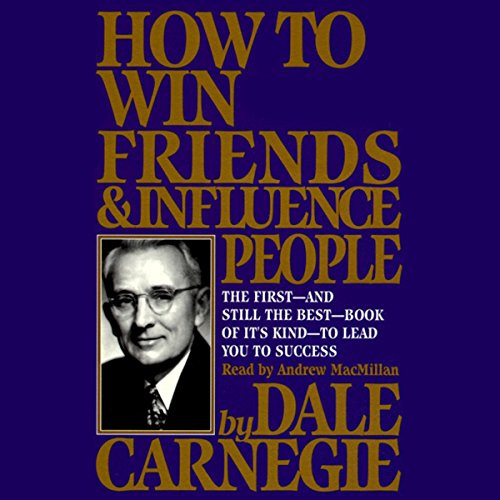I was in York last week and visited a chocolate museum. York is famous for chocolate - Rowntree, Frys, Craven - all big British chocolate dynasties, all based there. The Rowntrees were Quakers, a bi-product of which gave them a distinct advantage in the market.
At a time when dodgy manufacturers were mixing chalk dust into chocolate to cut costs, you knew a Rowntree bar would be what it claimed to be. Not because of better marketing. Because of trust. Quakers took vows of integrity and honesty, and that underpinned their business. Even if you weren’t a Quaker, you knew you could trust one.
That’s the quiet power of institutions. They’re human inventions that try to bottle human values. The Quaker church didn’t just worship integrity - it systematised it.
Every good institution is like that. They start with a set of values and say: we’re going to try to live by these. They don’t always succeed, but the trying matters. That aspiration creates the conditions for trust.
Now fast forward. Rowntree is owned by Nestlé. Quaker Oats is owned by PepsiCo. Their origin stories have been swallowed by the profit machine; their values too. We’ve learned to see “values” as PR. Just another tactic to help sales or keep everyone motivated. Profit is the only value that gets a proper seat at the table. Everything else is just decoration.
It’s that attitude that has infected almost everything.
We’re watching institutions that took centuries to build get dismantled in the name of “efficiency.” The values baked into them - honesty, integrity, fairness - are being downgraded or dumped. Trading Standards, health inspections, building regulations - those are easy to mock. Bureaucratic. Slow. But start cutting, and it’s not long before there’s chalk dust in the chocolate again. Yum.
Because truth and integrity is expensive, whereas lies are cheap. Just as lies once slipped into chocolate, they now slip into policy, into headlines, into the way we talk about the world. They’re faster. Easier. More clickable. Truth, meanwhile, takes time. It takes effort. It asks something of us.
Yet values are what underpin trust, and institutions are trust machines at a societal level.
Saints and Sewers
On the long drive back from York, I listened to Yuval Noah Harari talking about the deep state. “Yes,” he said, “there is a deep state - it’s deep under our feet. It’s called the sewage system.”
A life-saving, invisible and boring system that keeps drinking water separate from human waste. An underground network of engineering, people, policy, maintenance, and recordkeeping. Not metaphysical care - practical care. The kind that keeps you and me alive.
And yet we don’t thank it. If anything, we resent it. We complain about the paperwork. We moan about the council. We try to dodge the rules.
But that’s the way with modern service. When it works, it disappears. When it breaks, it becomes a scandal. When it delays your project, it becomes a villain. But there’s no human right to clean water - not unless someone maps the cholera cases, shuts the bad pump, and keeps investing in the systems that make water safe. And every one of those steps requires people who care. People who serve.
We confuse the visible paper-pushing with the invisible systems underneath. So we dismantle the former, not realising we’re also tearing up the foundations of trust. The result? More fragility. Less care.
The Values Coup
So what happened? How did we get from Quaker integrity to clickbait chaos?
We’ve been through a values coup. Not a revolution, not a conspiracy. (Although some people have benefited more than others.) Just a slow, quiet rewiring of what we reward and what we mock.
1. Integrity to Confidence
Over the 20th century, we shifted from valuing integrity to valuing confidence. As Susan Cain pointed out in her book Quiet, integrity used to be valued - and integrity was about doing the right thing, even when no one was watching. In contrast, confidence is valued today - and it’s about looking the part, owning the room, projecting success. In today’s culture, attention is everything. We reward swagger over substance. Hustle over honesty. Thus the predictable rise of populists.
And this has infected how we treat those who serve. Nurses. Carers. Caseworkers. Inspectors. We assume they’re either power-hungry or stupid. Because we can’t see the value in quiet, consistent care on an low income. We praise “hardworking families” in speeches, but in culture, we treat them like losers. If you’re still working hard, you clearly haven’t won. Real winners fit 18 holes of golf in whilst “running” the country.
2. Game Theory and Transactional Logic
Game theory won the 20th century. It’s residue is everywhere. Fundamentally, it suggests that people are just rational dealmakers. That cooperation is just a strategy to win in the long term. Maybe that’s true in some abstract sense. But it flattens something essential. Like when a nurse adjusts a blanket at 3am with no one watching. That’s not strategy. That’s service.
Joseph Rowntree wasn’t a Quaker because he thought “integrity” would give him a marketing edge, he was a Quaker because honesty and altruism mattered to him. People have argued that Christianity’s success really just comes down to it finding the ultimate game theory hack, but, like this author, I disagree.
Over my career I’ve spoken to hundreds of people in frontline jobs. They don’t talk about incentives. They talk about people. Moments. Connection. They don’t think they’re making a strategic bet - they think they’re doing what’s right.
Service isn’t a transaction. It’s a transformation. It’s not about hustling a payoff. It’s about creating meaning.
And it’s a choice. I can’t prove game theorists are wrong, just as they can’t prove I’m wrong. I just choose to believe that we won out as homo sapiens not solely because of individual competitive superiority, but primarily because we were able to co-operate in remarkable ways. I like to think Darwin would have agreed. It’s just that such views aren’t in vogue right now.
(Witness the US vice president’s theological tustle with two Popes and a podcaster. TLDR: both popes and the podcaster said the lesson of the Samaritan was the right way to go.)
3. Neo-liberalism and the Market Self
Neo-liberalism has made us all into mini-companies. Students are now customers. Citizens are consumers. Schools, hospitals, care homes - all are pressured to perform in markets that reward speed and efficiency over relationships and reliability.
In the same way services have been forced to become businesses. Water utilities become international companies, where value can be lawfully extracted by distant shareholders. Doing the right and just thing - like stopping human waste getting into the water system - is seen as a nice-to-have in the faux-logical language of business strategy. Leading to (in this case) life’s literal enshittification.
Neo-liberalism has been described as the “water we swim in”, given how unaware we are of it. Yet it’s the history of my lifetime. In its world everything is zero-sum. If someone else gets help, then you must be missing out. Immigrants, the disabled, the ill - all are lazy grifters with malicious intent to take what’s yours. So instead everyone is forced to hoard, compete and self-promote.
As a result we accept as natural and just that the richest people in the world getting richer as a result of a global pandemic, rather than seeing it as a weird type of mental health / hoarding disorder. And we witness the most powerful man in the world accepting $400m planes because it would be “stupid not to”, rather than seeing it as a huge compromise to national integrity.
The bi-product of this water we swim in? We have lost our ability to trust strangers.
If everyone is out for themselves, then the world is a dark forest and no-one can be trusted.
4. Algorithmic Falsehoods
The early internet builders were utopian. They wanted it to be free for all. But eventually someone had to pay the bills, so they turned to advertising and our attention became monetized. The algorithms that curate our content, don’t care what’s true, they care what’s clickable - what gets and keeps our attention. Which means outrage, simplicity, repetition. Unfortunately truth is nuanced and often boring. It takes time. It doesn’t go viral. It gets lost. We built an internet that amplifies lies.
So we live in an environment where falsehoods move faster than facts. Where the loudest, not the wisest, get heard. Where people no longer believe in institutions because they’ve seen too many headlines saying those institutions are broken. Where people no longer trust others because true dialogue has been replaced by angry polarised comment sections.
We see this turbocharged because the algorithms that shape our information reality are now owned by billionaires in league with zero-sum neo-liberal leaders.
5. Giving Up on Inequality
There was a time when rich industrialists tried, however imperfectly, to build. They founded libraries, hospitals and city parks. The Rowntree chocolate dynasty created whole towns to house their workers, with free healthcare and education. They may not have been perfect, but there was an implicit mission to help others progress and thrive. But today’s tech billionaires aren’t trying to fix the world - more often it looks like they’re trying to escape it.
Peter Thiel famously said he no longer believes democracy and freedom are compatible. He backed a president and vice-president who openly undermined public trust, while funding startups that sell surveillance to the state. Elon Musk posts memes about population collapse while sacking safety teams. Mark Zuckerberg gave up on fixing Facebook. These aren’t builders. They’re escape artists.
Many of them credit Ayn Rand - a thinker who saw altruism as weakness and selfishness as virtue. In Atlas Shrugged, the heroes are the ones who withdraw their talents from the world in protest. That’s not fiction anymore. It’s strategy. If you have enough money, you can buy your own water, your own security, your own school, your own laws.
And so they do. In the face of climate collapse, they build bunkers in New Zealand. They invest in private islands, off-grid homes, cryonics, spaceports. Not because they want to serve - but because they want out.
The fight for equality and fairness is just not on their radar. Instead they appear to have accepted that inequality is natural. Inevitable even.
The problem though - as history tells us time and time again - is that when inequality gets too big, it breaks trust. People stop believing the system is fair. And things get bad quickly. When we stop believing in each other, and stop working towards a common set of values, everything frays.
We Just Don’t Trust Each Other Anymore
All these factors have contributed to two big changes:
We’ve stopped trusting people who serve.
We’ve stopped trusting the institutions they work in.
We assume everyone’s out for themselves. We assume that anyone who claims to care is lying.
And so we vote for people who promise to burn it all down. We lose our empathy. We harden up. We become a nation of solo players in a rigged game. A culture where caring doesn’t scale, and service is seen as soft.
But it’s not true. The sewer is still there. The nurse is still there. The chocolate bar you can trust still matters. There are people showing up every day, doing the boring jobs that hold things together. And thank god for that. These aren’t abstract issues for the comments section. Services are matters of life and death.
If we want to keep our society intact, we need to urgently wake up, start valuing those who serve and rediscover our gratitude for the service institutions that bind us together.
Because when the trust is gone, the chalk dust will be quickly back in the chocolate. The shit will be back in the water. Rebuilding it will take generations.











